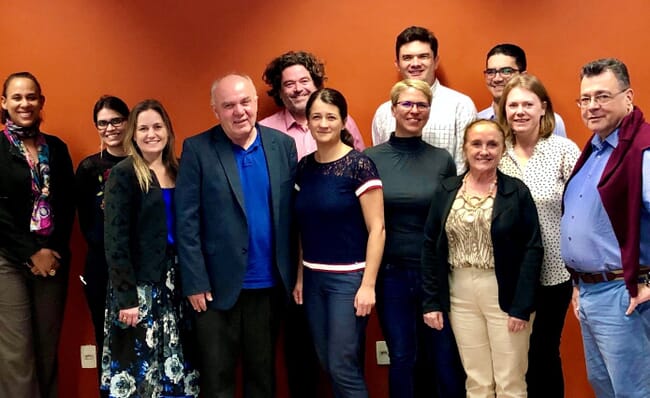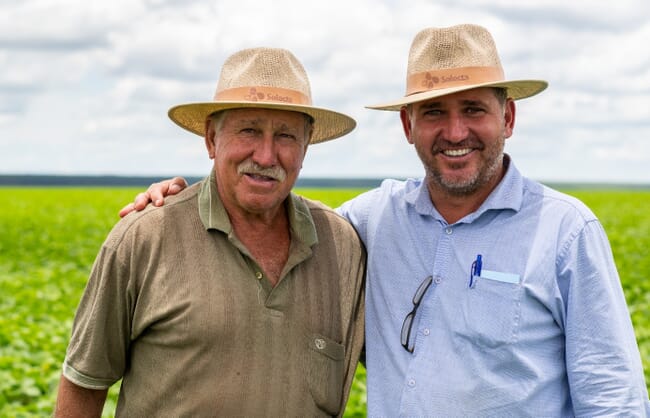Brazilian agriculture practices and deforestation have recently come under scrutiny and aquaculture feed companies have established a roundtable group to work to improve the salmon value chain, but also take some practical actions outside of traditional scope.

The Aquaculture Dialogue on Sustainable Soy Sourcing from Brazil consists of the feed companies Skretting, Cargill Aqua Nutrition, BioMar and Mowi, together with the certification organisation ProTerra and the Brazilian soy protein concentrate (SPC) producers Caramaru, Imcopa and CJ Selecta. Currently, salmon feed producers in Northern Europe only purchase certified deforestation-free soy from Brazil, but they are now stepping up the traceability of their raw materials to ensure this remains the case.
After the first dialogue meeting, ProTerra has worked together with the Caramaru, Imcopa and CJ Selecta to include traceability information and to improve the transparency within the value chain.
Each shipment delivered to feed producers will now include information about the municipalities and states from which the soy has been sourced. Caramaru, Imcopa and CJ Selecta now also have a semi-automated tracking capacity to determine the sourcing details of the delivery.

© Leif Kjetil Skjæveland, Skretting
The Google-powered AgroTools is the backbone of this traceability system, and the database issues certificates for each farm that is part of the ProTerra programme. Detailed information about the farm’s deforestation and other illegal activities is available if needed. This means that if a farm is accused of non-compliant activities, or has violated the agreement, it has become easier and faster to determine if and when this occurred, and if the resultant product has been delivered to European salmon feed producers.
The new systems also helps them to demonstrate that their SPC suppliers ensure respect of human, labour and environmental laws for the soy farms supplying them.
“With adoption of the new system we can be assured that Caramaru, Imcopa and CJ Selecta’s farms and suppliers fulfill regulations associated with these issues, even those farms outside the ProTerra certification scheme,” said Skretting in a press release.
“With these changes in place, salmon feed producers have, together with ProTerra, built long-term sustainable purchasing and supplier policies that prohibit the sourcing of soy products from lands that are illegally deforested. Caramaru, Imcopa and CJ Selecta openly state that they want measures taken by the Brazilian government against illegal deforestation to enforce the Brazilian law,” Skretting added.



